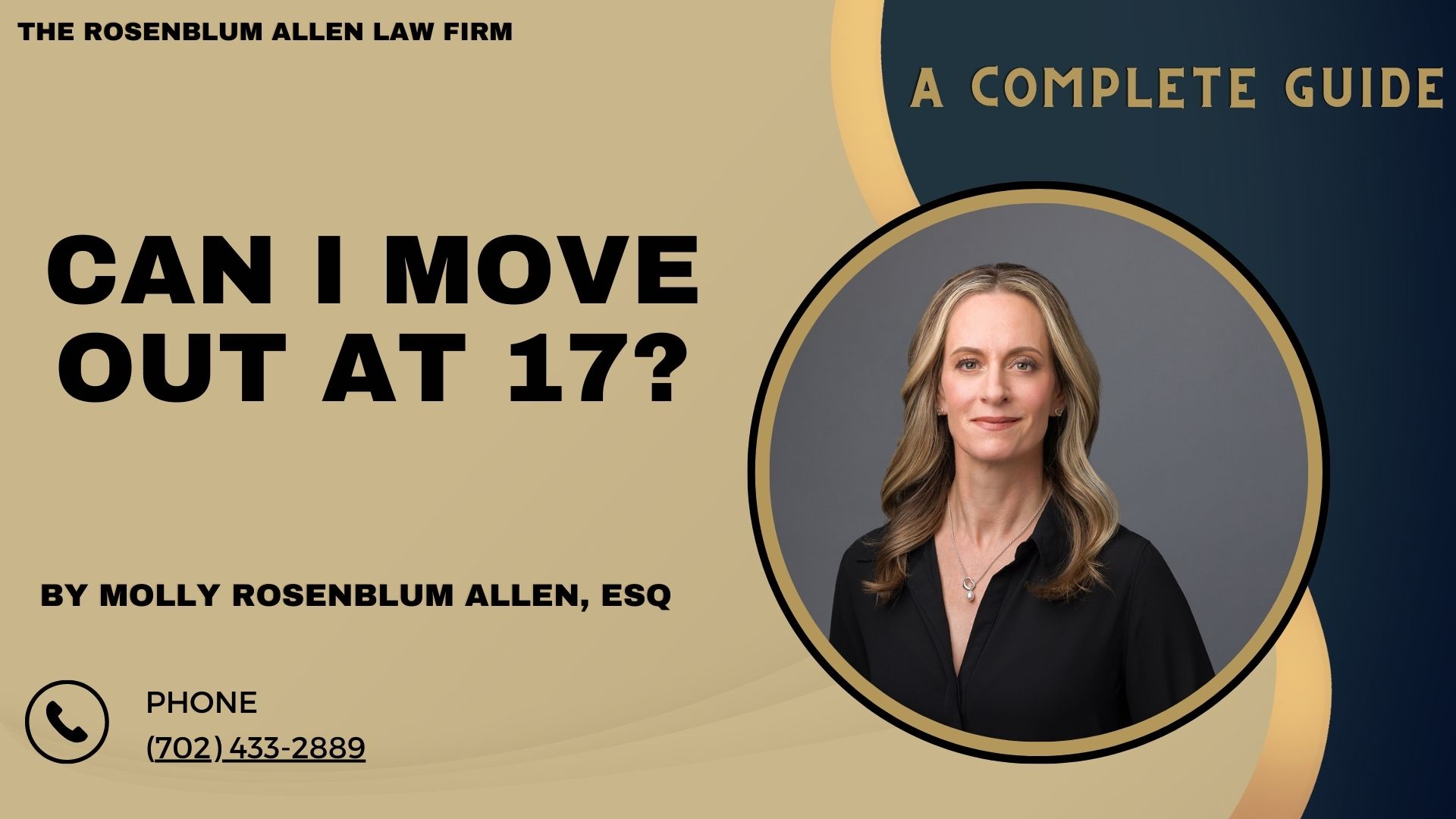Thinking about moving out at 17 can feel like standing at the edge of a giant leap. It’s a step filled with questions and a bit of uncertainty. This guide walks you through what you need to know about this step. We’ll cover legal bits like age restrictions and emancipation and also look into what being on your own might mean for you emotionally and practically.
Legal Age and Emancipation
Understanding Legal Age
At what age can you decide to live independently? This varies depending on where you live. The age of majority is the legal threshold of adulthood, and it’s not the same everywhere. In most places, you’re considered an adult at 18, but exceptions exist.
Understanding Legal Independence
Emancipation Nevada is a legal process that gives minors the rights and responsibilities of adults before they reach the age of majority.
How can a minor become emancipated?
There are a few paths to emancipation:
Court petition for emancipation: You can ask a court to declare you emancipated.
Marriage: Getting married can emancipate a minor in some places.
Joining the military: In some instances, enlisting in the military might lead to legal independence.

The Process of Emancipation
Filing a petition
To kick things off, you’ll need to file a petition in court. This requires:
Necessary documents: Proof of your income, a plan for where you’ll live, and a statement explaining why emancipation is in your best interest.
Legal requirements: These can vary, so it’s essential to check the specifics for your area.
Court proceedings
Here’s what to expect:
What to expect in court: The court will examine your situation, including your maturity level and financial stability.
The role of a guardian ad litem: Sometimes, the court appoints someone to help look out for your interests during the process.
Requirements for Legal Independence
The court will consider several factors:
Financial independence: Can you support yourself?
Living situation: Do you have a stable place to live?
Maturity and decision-making ability: Are you ready to handle adult responsibilities?
Understanding these steps and requirements is crucial. It’s crucial for any minor who is considering the move to independence. Each step requires careful thought and preparation. Are you thinking about legal independence or just curious about your options? Knowing your rights and the processes is the first step. It will help you make informed decisions about your future.

Breaking It All Down
Deciding to move out at 17 is a big step, packed with challenges and responsibilities. It’s about more than just asserting your freedom. It’s a serious legal and personal choice that affects your future. If you’re considering this path, remember the need for planning. Also, understand your rights and the legal steps in emancipation.
Take the time to assess your readiness, both financially and emotionally. Seek advice and support from trusted adults, legal professionals, and support services. Remember, the goal isn’t just to move out but to build a stable and prosperous life on your terms.
As you contemplate this decision, remember you’re not alone. There are resources and people ready to help guide you through this journey. You can do it through emancipation or by waiting until you’re legally an adult. Your well-being and prospects truly matter.

Frequently Asked Questions
Can my parents legally force me to come back home if I move out at 17?
It depends on your legal status. If you’re not emancipated, your parents may have the right to ask you to come back home. After emancipation, you’re considered independent. They cannot force you to return.
What happens if I move out without becoming emancipated?
Moving out without emancipation could lead to legal issues for you and any adult who helps you. Your parents might report you as a runaway, which could involve the police.
Are there any exceptions to the rule that you have to be 18 to move out?
Yes, some states have specific circumstances where minors can live independently before turning 18. This is possible through marriage or military service, usually with parental consent.
Can I sign a lease for an apartment at 17?
Minors cannot make binding contracts like leases unless someone has emancipated them. Some landlords might allow it with a co-signer, but it’s not common.
Will I still be able to finish high school if I move out at 17?
Yes, you have the right to continue your education, but you must pay for yourself, which can make school harder.
Can I get a full-time job if I move out at 17?
Labor laws may limit employment opportunities for minors. Emancipated minors have more options, but there are still restrictions on the types of jobs and hours.
What should I do if I don't feel safe at home?
If you’re in an unsafe situation, reach out for help. Contact a trusted adult, teacher, or counselor. Or, call a local hotline or child protective services for guidance and support.
How can I prove financial independence for emancipation?
You’ll need to show that you have a stable income enough to cover your living expenses like housing, food, and healthcare. You can’t rely on your parents.
Can I still go to college if I'm emancipated?
Absolutely. Being emancipated doesn’t affect your eligibility for college. You might even qualify for financial aid based on your income rather than your parents’.
What rights do I lose if I become emancipated?
Emancipation grants you adult rights but also means losing the right to be financially supported by your parents. You’ll be responsible for your own decisions and consequences.
Is it possible to reverse emancipation?
In some cases, yes. If you cannot support yourself or become emancipated, you can ask the court to reverse the decision. However, this is rare and depends on state laws.

Additional Resources for You
In addition to this comprehensive guide, our lead attorney, Molly Rosenblum Allen, Esq., has created a suite of resources to support you in your time of need. Whether you’re navigating the complexities of family law, considering changes to your family structure, or seeking legal advice on personal matters, these resources offer valuable insights and guidance:
Las Vegas Family Law Attorneys: Effective legal support for all family law matters, including divorce, custody, and more. Visit here.
Family Court Las Vegas: Navigating the family court can be challenging. Find out how to effectively manage your case with this guide. Learn more.
Common Law Marriage in Nevada: Wondering about common law marriage in Nevada? Get the facts on what constitutes common law marriage in the state. Read more.
Name Change Las Vegas: Looking to legally change your name? Here’s everything you need to know about the process in Las Vegas. Find out how.
Nevada Power of Attorney: Essential information on granting power of attorney in Nevada, including how to appoint someone and what powers they can have. Explore here.
How to File a Motion in Family Court: A step-by-step guide to filing motions in family court, making the process clearer and more manageable. Check it out.
Family Court Mediation: Discover the benefits of mediation in resolving family disputes and how it can be a constructive alternative to court proceedings. Learn more.
Unbundled Attorney: Find out about unbundled legal services, offering a more flexible and affordable option for legal assistance. Read more.
Nevada Adoption: Considering adoption in Nevada? Here’s your guide to the adoption process, legal requirements, and how to begin. Explore here.
Molly Rosenblum Allen, Esq., and the team at The Rosenblum Allen Law Firm are committed to providing you with the resources and support you need during challenging times. These resources are designed to guide you through your legal journey, offering clarity and assistance every step of the way.

Outside Resources for You
American Bar Association (ABA) Family Law Section: A leading authority on family law, offering resources, articles, and guidance for the public. Visit the ABA Family Law Section.
National Association of Counsel for Children (NACC): Dedicated to improving legal representation for children, families, and victims of domestic violence. Explore NACC.
Child Welfare Information Gateway: Provides information and resources related to child welfare, child abuse and neglect, adoption, and more. Check out the Child Welfare Information Gateway.
Legal Aid Center of Southern Nevada: Offers free legal assistance to low-income residents of Southern Nevada, with a focus on family law and other critical legal issues. Learn more about the Legal Aid Center.
WomensLaw.org: A project of the National Network to End Domestic Violence, offering state-specific legal information and resources for women facing domestic violence. Visit WomensLaw.org.
American Academy of Matrimonial Lawyers (AAML): A resource for those seeking knowledgeable and experienced family law attorneys. Explore AAML.
National Domestic Violence Hotline: Provides essential support and resources for individuals affected by domestic violence. Contact the National Domestic Violence Hotline.

A Special Message from Our Lead Attorney, Molly Rosenblum Allen, Esq

Dear Reader,
Thank you for taking the time to explore the resources we’ve carefully prepared for you. I hope you’ve found valuable insights and guidance to help navigate your situation. At The Rosenblum Allen Law Firm, we understand legal issues are complex and emotional. This is especially true for family law.
We are here to offer you the support, advice, and representation you may need during this time. Each situation is unique. We are committed to understanding your needs in order to provide the best solutions.
Please contact my team at (702) 433-2889 to discuss how we can assist you further. Your needs are our priority, and we’re ready to take the necessary steps to help you move forward.
Warm regards,
Molly Rosenblum Allen, Esq.





